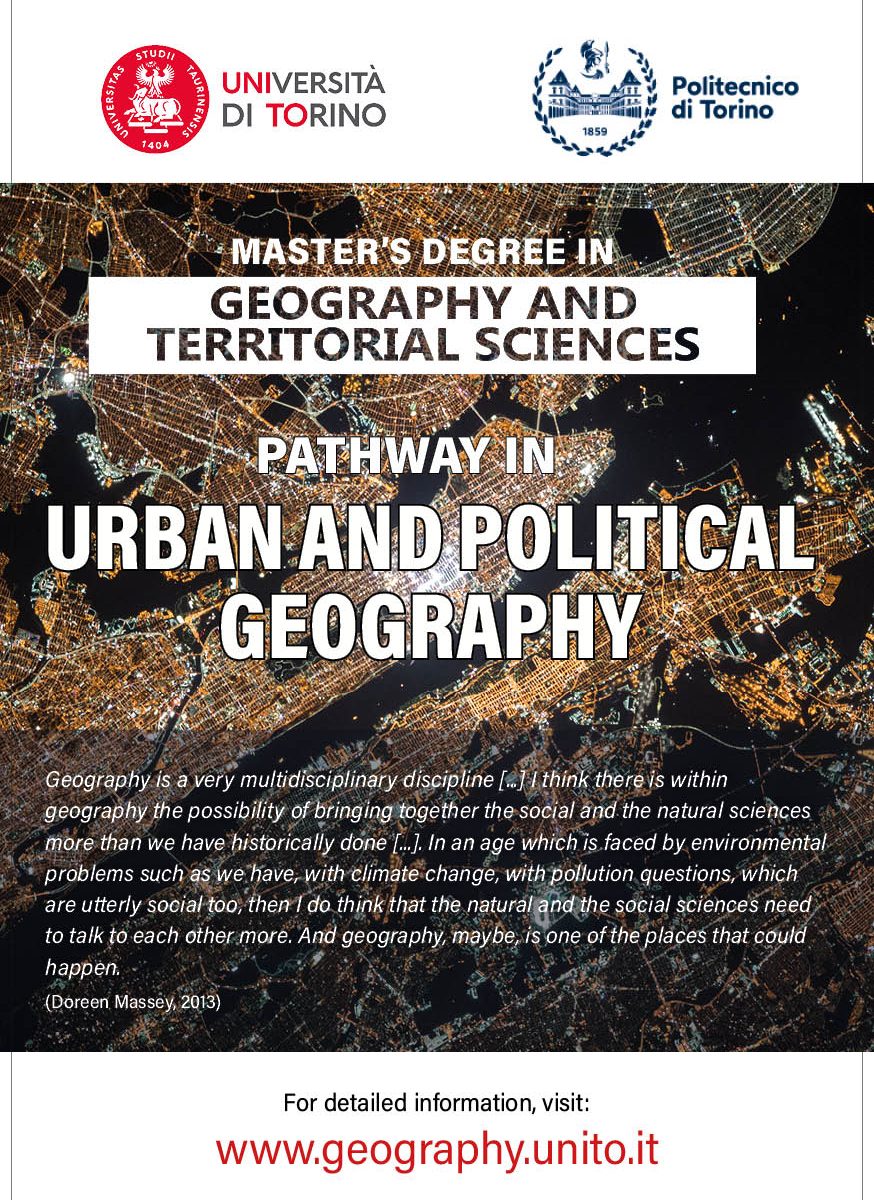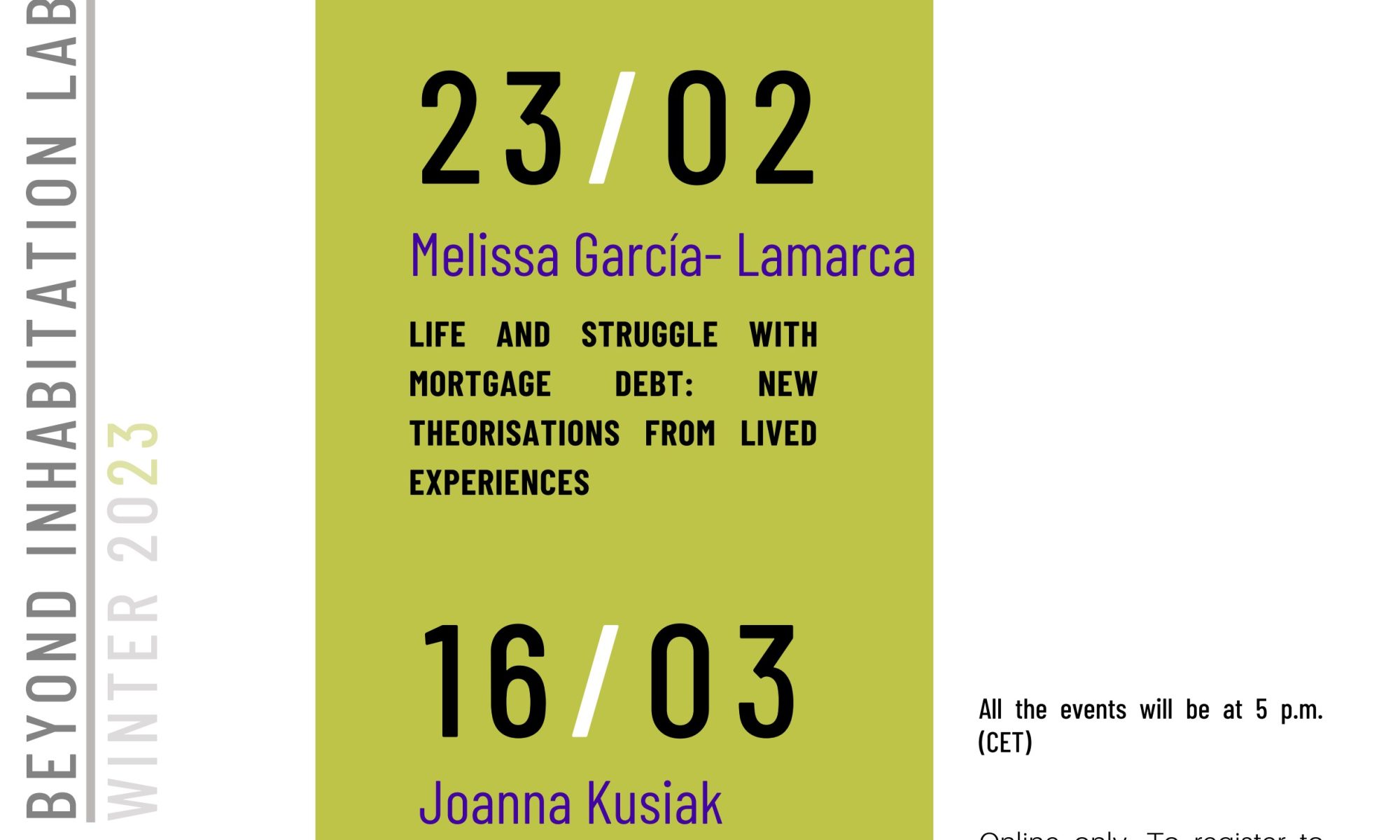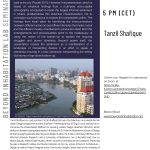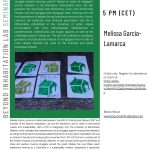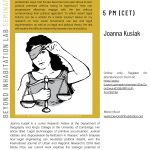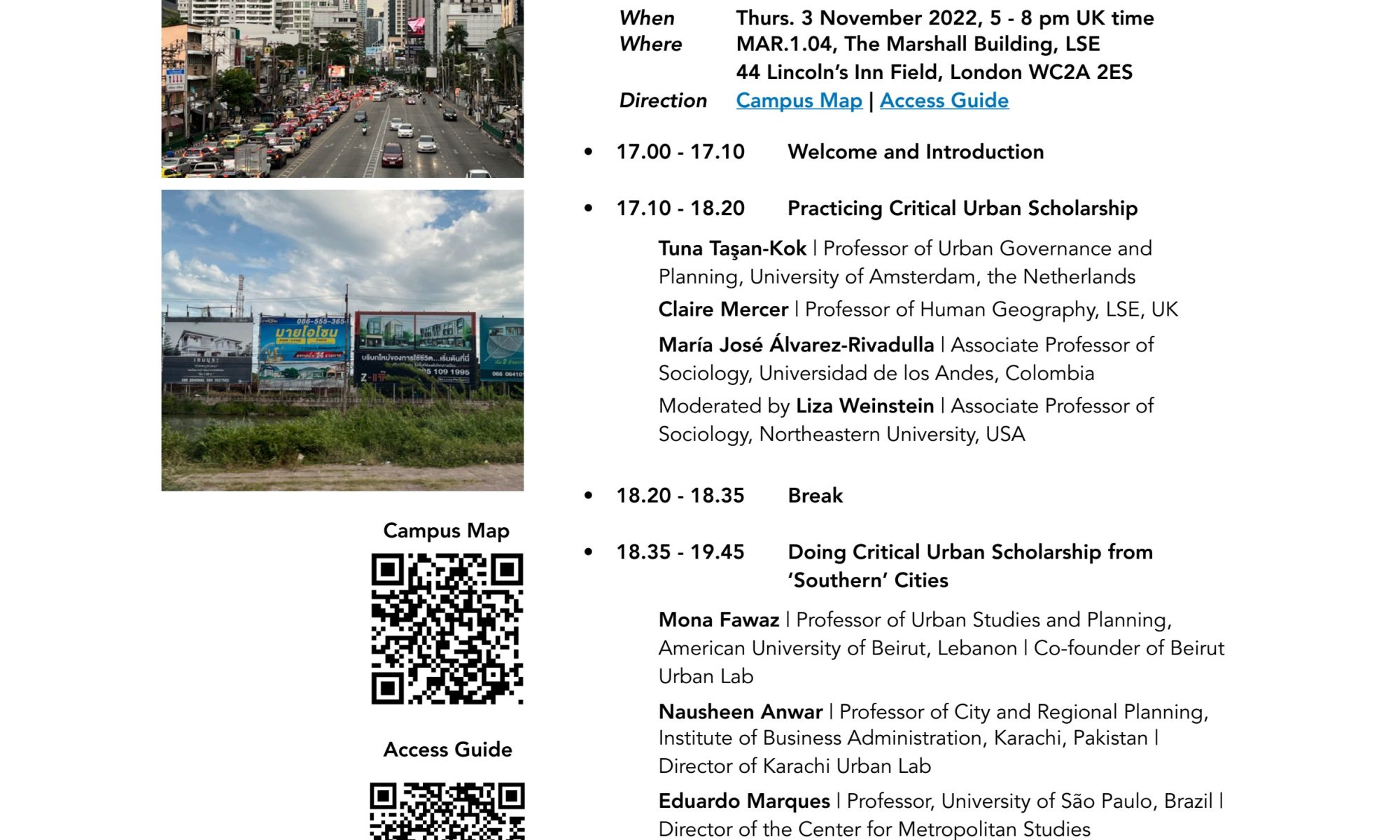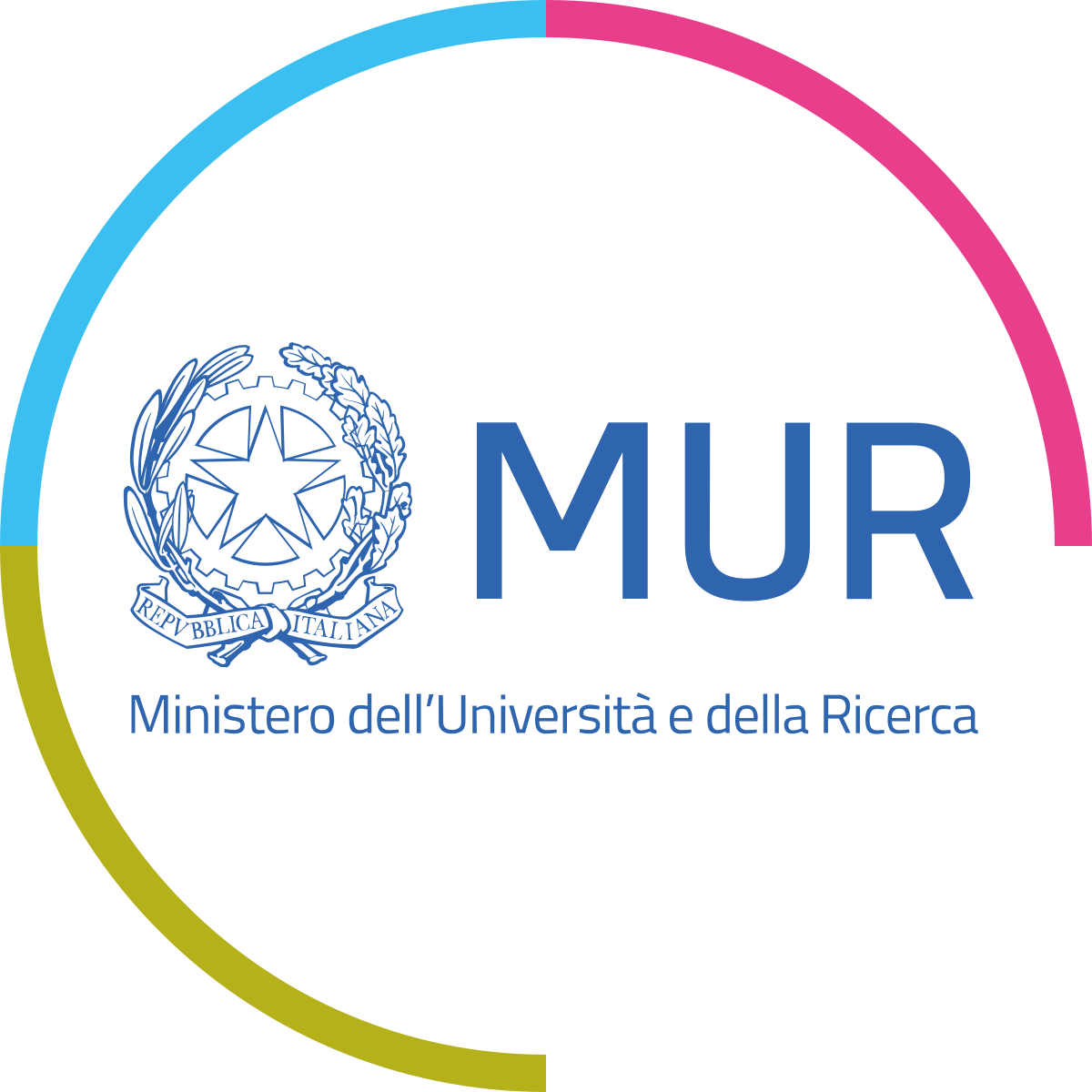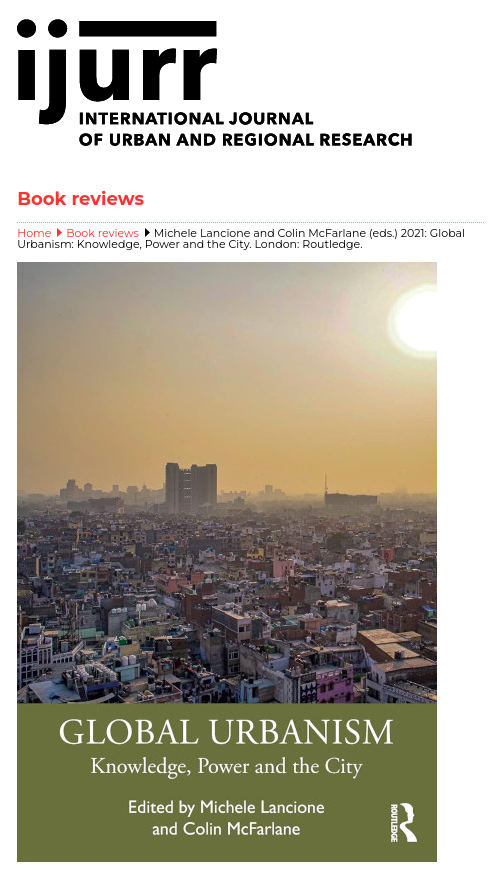Call for The Lisbon Early-Career Workshop in Urban Studies (8-10 nov 2023)
With thanks to Simone Tulumello and colleagues for the invitation to join their wonderful workshop, check below for basic info on how to apply and attend. To get the full picture, please visit: https://urbantransitionshub.org/events/the-lisbon-early-career-workshop-in-urban-studies-3rd-ed-ics-ulisboa-8-10-nov-2023/
The Lisbon Early-Career Workshop in Urban Studies
Imaginaries of inhabitation, or, the future of planetary dwelling
3st edition – 8-10 November 2023
Instituto de Ciências Sociais da Universidade de Lisboa (ICS-ULisboa), Lisbon
Organisation:
Keynote speakers:
- Michele Lancione (Politecnico di Torino)
- Stephanie Wakefield (Life University)
The Urban Transitions Hub, the AESOP Young Academics Network and project “UrbanoScenes: Post-colonial imaginaries of urbanisation”, with the support of Research Group SHIFT: Environment, Territory and Society of ICS-ULisboa, will host the third edition of the Lisbon Early-Career Workshop in Urban Studies, from 8 to 10 of November 2023. Circa 30 PhD candidates and early-career scholars will have the opportunity to present and discuss their research projects and/or findings during a 3-days event organised as a space of exchange, debate and learning.
Who can attend the workshop
The workshop is open to PhD students and early-career scholars in the fields of urban studies, planning and geography, and all the social sciences and humanities with an interest on space.
A minimum of 8 seats will be reserved to members of the AESOP Young Academics, please mention in your motivation letter whether you are a member (registration to the YAs is free and open to all early-career scholars).
Application and registration
Applications open from 15 February 2020 to 30 March 2023.
Send an abstract for your presentation (max 500 words) and a short letter of motivation to mallegra@ics.ulisboa.pt and simone.tulumello@ics.ulisboa.pt.
Decisions will be sent by 30 April 2023.
Registration by 30 June 2023.
Submission of long abstract or short paper (max 5,000 words) to be distributed among participants by 30 September 2023.
Registration fee: 200€.
Launching a new Master in Urban and Political Geography in Turin!
In Turin we are launching a new Urban and Political Geography pathway within our Master in Geography and Territorial Sciences.
From Sept 2023 | All in English | With leading scholars | Beautiful City | Low tuition fees.
The curricula include courses on the birth of critical geographical thinking, urban & housing studies, racialised & gendered cities, history and spaces of capitalism, critical migration studies, southern urbanism, political ecology & more.
Check the full brochure: https://www.geography.unito.it/documents/2023_Brochure_Geography_EN.pdf
For subscriptions & further info: https://www.masterstudies.com/Interuniversity-Masters-Degree-in-Geography-and-Territorial-Sciences/Italy/Politecnico-di-Torino-Inter-university-Department-of-Regional-and-Urban-Studies-and-Planning/
Feel free to contact me if you are interested or have any questions.
Launching the Winter 2023 Beyond Inhabitation Lab online Seminar Series
Today we are launching our Beyond Inhabitation Lab 2023 online Seminar series!
We are going to host three wonderful speakers:
- 26 Jan 2023 with Tanzil Shafique on “The Myth of the Bottom-Up in Precarious Housing: Lessons from the Largest ‘Informal’ Settlement in Dhaka”
- 23 Feb 2023 with Melissa García-Lamarca’s “Life and Struggle with Mortgage Debt: New Theorisations from Lived Experiences”
- 16 March 2023 with Joanna Kusiak on “Law and Politics, or the Politics of Law”
All seminars will begin at 5 p.m. (CET) and will take place online.
For info and registration links: https://beyondinhabitation.org/beyond-inhabitation-lab-2023-winter-seminar-series/
The future of urban epistemic, event @Urban Institute, Sheffield
I’m looking forward to tomorrow’s event at the Urban Institute in Sheffield.
The brilliant Beth Perry will speak on Co-production and the Future of Urban Epistemics, with responses by Linda Westman, Aïcha Diallo & myself.
This is part of the “Sheffield urbanism” lectures series (https://www.sheffield.ac.uk/urban-institute/news/co-production-and-future-urban-epistemics)
December 14th, 3pm GMT, free online attendance by registering at: https://www.eventbrite.co.uk/e/workshop-on-the-future-of-urban-epistemics-online-tickets-439607135777
Frontex and Polytechnic: Another vote to confirm the agreement and further connivance with human rights violations
Note: this open letter was also published in Italian in the newspaper La Stampa (see below for the scan of the article)
The EU anti-fraud unit (Olaf) report on Frontex is clear. The Agency ignores the human rights of people in transit across the Mediterranean and the Balkans. There is proof of how Frontex’s planes and drones have witnessed migrants drowning in the high sea between Lybia and Italy, and they did not intervene. This is not only a violation of Article 18 of the EU Charter of Fundamental Rights (right to asylum) but also, more simply and fundamentally, of Article 2 (right to life) and numerous international maritime conventions requiring anyone witnessing situations of distress in the high sea to intervene or alert bodies capable of intervention. Frontex systematically avoided any kind of intervention on purpose, on a number of occasions, violating the fundamental right to life of the people in situations of peril on those boats. The Agency itself recognised this, at least implicitly, when its Director resigned seven months ago at the surfacing of the first revelations from the (at the time undisclosed) Olaf report.
As it is known, my Department at the Polytechnic of Turin, where I am full Professor of Political and Economic Geography, provides cartography services to Frontex. This association between the two institutions is problematic not only because there is no way to know how Frontex will use the maps (potentially, to pursue the further violation of human rights), but also because, by proxy, everyone in my Department, me included, is now relatable with the doings of the Agency. This is not just a problem of image, but a serious ethical question: can I carry ‘ethical’ research work, if my Institution is doing affairs with a third party who is involved in the systematic violation of human rights?
For a year, some of us have been forcefully fighting this agreement (back story, in ENG and ITA). In one of the latest chapters of this story, just a few weeks ago, in an unprecedented move, the University of Turin officially asked the Polytechnic to take an active stance against this agreement with the Agency (in ENG, and ITA). Yet, not the overwhelming evidence of the Olaf report, nor the stances of researchers and students in Turin, are enough for my employer to reconsider their untenable position. Following the request from the University yesterday, the Senate of the Polytechnic of Turin was asked once again to vote on the opportunity to maintain the collaboration between my Department and Frontex and, by 19 votes against 29, the Senate voted to maintain the agreement (as reported by Luca Rondi in Altreconomia). As if nothing matters. As if the Mediterranean and its bodies are on another plane of existence. As if collaborating with Frontex was just a technical matter: something detached from the doings of the Agency.
If this is science, as a scientist, I am ashamed. I am angry, furious. It is unacceptable that a public University such as the Polytechnic refuses to confront the overarching amount of evidence against Frontex. It is unacceptable that this has not become a major point of ethical concern: a point where the praxis of doing academic labour can acquire, or lose its sense entirely. To me, yesterday, with that vote, the Polytechnic lost the little credibility they had left. There is no possible talking of ‘ethics’, now. No possible bombastic speech on ‘research excellence’. We are complicit: this is what ‘science’ is at this time in Europe. For the students, and for the very few researchers who are still seeing things otherwise, I will work so that this is not the end.
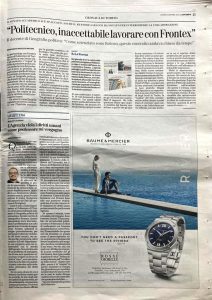
New 2-year Post-doctoral Fellowship to work on housing financialisation in CEE (deadline 7th Dec)
I am currently offering a new 24-month Post-Doctoral Fellowship as part of a grant I was recently awarded to expand my ERC research project toward Central Eastern Europe (FARE – read more here).
The researcher will work at the DIST department at the Polytechnic of Turin, they will be mentored and followed by myself (profile here), and they will join the Beyond Inhabitation Lab. The salary is around €1.770 net per month, and relocation to Turin is mandatory and non-negotiable.
The context is open internationally, and the application closes on 7th December 2022, 3pm CET. You can submit your candidacy here: https://careers.polito.it/default.aspx?id=292/2022-AR (please selected ‘ENG’ at the top of the page to see the English version of the application)
Please note that the Italian system of evaluating applicants is a point-based system. You will be evaluated by a commission of three academics based at the Polytechnic of Turin as follows. First, the commission will judge the titles (degrees, experiences, publications) that you will upload on the online platform on the basis of the positions’ requirements. Then, you will undertake an oral interview (online) with the same commission, to check your level of English and to discuss your research trajectory. On the basis of both, a ranking of candidates will be generated, and the first one will be assigned the fellowship.
Below you can read an outline of the kind of candidate I am looking for. The context is open, so please refrain from contacting me, unless you have queries about the procedure (but even in that case, please do check for the information available online at the Polito website, before contacting me).
Precarious Housing in Eastern Europe: Histories, Geographies and Urban Political Economies
The research program is part of the MIUR-funded “EASTERNHousing” project, which is a geographic and conceptual extension of the ERC-funded “RadicalHOUSING” project. EASTERNHousing provides an in-depth comparative study of the rise in precarious housing conditions experienced in CEE since the fall of the Berlin wall. The research program investigates how capital flows are reshaping three major underexplored Eastern European cities. We include changes to real estate markets, including the transfer of state properties to the private sector, and the involvement of Western countries in the ‘redevelopment’ of CEE urban cores.
The research fellow (PDRA) will initially engage in collective and collaborative intellectual work in the Beyond Inhabitation research group, which hosts the ERC RadicalHOUSING project. An extensive literature review, discussed collectively, will lead to a mutual appreciation of research paths, traditions, and critical approaches.
After this initial period, the PDRA will structure desk research that will lead to catalog and map the major public housing privatization projects from 1989 until today in the selected CEE cities. In the second phase, the PDRA is expected to engage in the field and desk-bound research – to be defined with the PI. The final part of the project will be dedicated to collective analysis and writing. Support will be provided for fieldwork, as well as for participating in international conferences and preparing academic publications in high-level journals. The PI is committed to advancing the PDRA’s career, and individual plans will be made to this end.
To be considered for the job, the applicant will need, at a minimum, to have the following experience:
- Publications in some of the following: field of critical geography; critical and comparative urban studies; economic geography; housing political economy; international real estate market studies; housing privatization/commodification
- Evidence in quantitative methodologies
- Evidence on research pertaining to housing and platforms, and housing and financialization
- Demonstrable knowledge of housing financialization processes through publications
- Excellent fluency in written and oral English
IJURR event: In conversation on Decentring Critical Urban Scholarship
I am thrilled to take part in “Decentring Critical Urban Scholarship: Conversations with IJURR”
I will introduce the work of the Beyond Inhabitation Lab (www.beyondinhabitation.org) together with other Labs located across the globe.
Thursday, 3rd November, 5-8pm UK time
For in person on online attendance, register at: https://www.eventbrite.co.uk/e/decentring-critical-urban-scholarship-conversations-with-ijurr-tickets-427917421527
New competitive grant capture – Expanding ERC research toward Eastern Europe
I am thrilled to announce a new successful competitive funding application, from the Italian Ministry of University and Research. The scheme is called ‘FARE‘, which stands for Framework for the attraction and the strengthening of excellence for research in Italy.
My project, entitled Housing precarity in Eastern Europe: histories, geographies and urban political economies, will run for the next four years and has been awarded €238.000. These monies will complement the main ERC work, titled Inhabiting Radical Housing, by expanding its remit towards Eastern European geographies – allowing me to deepen my long-standing interest in Romania and in the wider region.
In particular, the project will focus on three main concerns: i) the financialisation of housing in Central Eastern Europe, and in specific the role of Western capital in shaping the contemporary urban housing question there; ii) modalities and politics of grassroots housing organising (expanding my work with housing activists in the region); iii) changes in everyday housing and urban affective regimes in three selected cities, investigated through audio-visual methods. A postdoctoral position will be offered to help me navigate the intricacies of the first concern, while the other two will be dealt with directly by myself and CEE members of the current ERC team.
Finally, the project’s resources will also be used to support and expand the workings of our Beyond Inhabitation Lab, providing further means of exchange and collective study with scholars and activists based in CEE.
Book review of ‘Global Urbanism’ in IJURR
Thank you Michele Acuto for your generous review in IJURR of the book I’ve done with Colin McFarlane!
56 authors across the globe, for a non-totalising & grounded reading of ‘global urbanism’… It took a lot, but I’m so happy about this book!
Book available, also in paperback, at: https://www.routledge.com/Global-Urbanism-Knowledge-Power-and-the-City/Lancione-McFarlane/p/book/9780367745349



